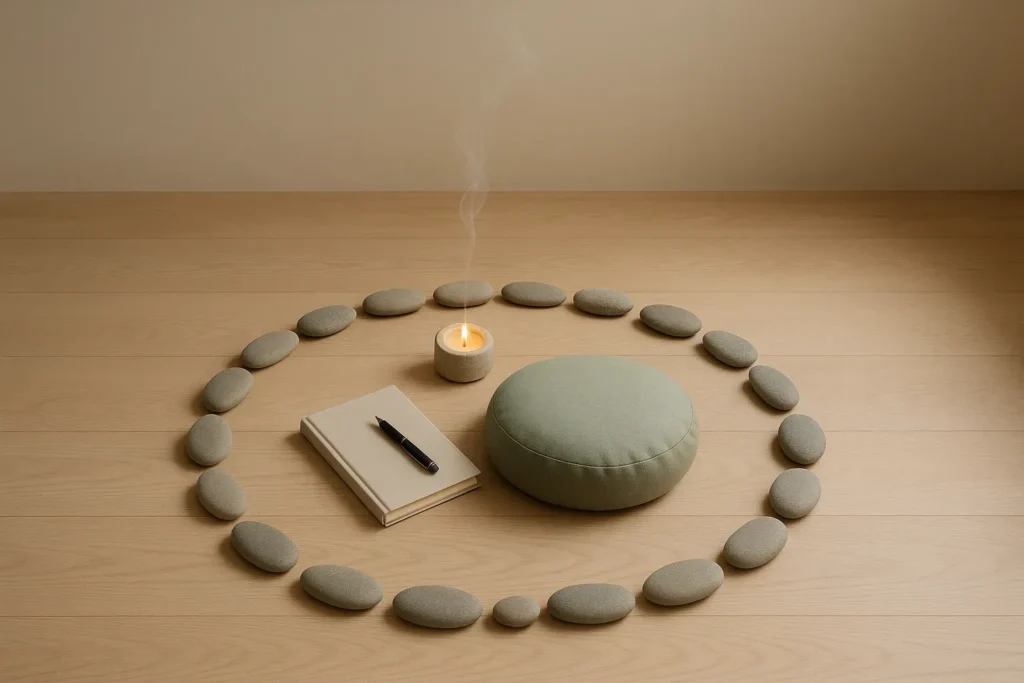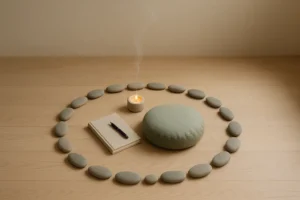Self-reflection can be transformative, yet many struggle to incorporate it into daily routines. This article shares practical techniques gathered from leading experts to help build a sustainable self-reflection practice. From evening walks to morning journaling, these seven simple methods can be implemented immediately to enhance personal growth and mental clarity.
- Unsent Emails Reveal Authentic Inner Thoughts
- Evening Walks Create Mental Space for Reflection
- Morning Journaling Uncovers Subconscious Priorities
- Daily Learning Question Builds Growth Mindset
- Two-Minute Debrief Reveals Patterns Over Time
- Phone-Free Walks Provide Mental Clarity
- Five-Minute Rule Builds Trust Through Consistency
Unsent Emails Reveal Authentic Inner Thoughts
One of the simplest but most effective ways I practice self-reflection is by writing emails I never send. Whenever I feel stuck on a decision or uneasy about something, I’ll open a blank draft and write as if I’m explaining the situation to a close friend. The trick is: I don’t edit, and I don’t plan on hitting send.
What makes this powerful is that it strips away performance. In a journal, I sometimes find myself writing the “version of me” I want to believe. But when I write an unsent email, it feels conversational, unguarded. I notice my real anxieties bubbling up—like the tiny fear I’d never admit in a meeting, or the option I secretly want but don’t think I “should.”
The benefits show up quickly, usually within the span of a single draft. By the time I’ve finished typing, the problem feels clearer. Half the time, I don’t even need to reread it—the act of articulating it honestly is enough.
The insight I’ve gained: self-reflection doesn’t always require more silence or meditation. Sometimes it requires putting your raw, unfiltered thoughts into a form that feels like you’re talking to someone who’d never judge you. For me, that’s the unsent email.

Evening Walks Create Mental Space for Reflection
As a full-time working mom with toddlers, one simple way I practice self-reflection is by taking short evening walks without my phone after the kids are asleep. It’s my pocket of quiet time to replay the day, notice what went well, and where I could’ve handled things differently. The simple movement helps clear my head in a way journaling doesn’t, and I usually come back with one or two small takeaways I can carry into the next day. It’s quick, doable, and feels like a reset button in the middle of all the busyness.

Morning Journaling Uncovers Subconscious Priorities
One activity I rely on is morning journaling before I check email or messages. I write without structure and simply note what is on my mind. The first few lines often feel scattered, but eventually certain themes begin to surface. Sometimes it is a concern about a project. Other times it is gratitude for a team member or questions about strategy. By putting thoughts on paper before the day takes over, I create a mental reset that clears space for focus.
This practice is powerful because it reveals what my subconscious is prioritizing, which can often be different from my planned tasks. Many times I uncover ideas worth pursuing or notice anxieties that need attention. Writing with pen and paper encourages honesty because there is no filter. It gives me a reliable way to understand myself each morning and prepare for the decisions ahead.

Daily Learning Question Builds Growth Mindset
Self-reflection for me often starts with a single question before bed like “What did I learn today?” This practice grounds me and keeps me aware of growth. Some days the answer is about leadership and how decisions shape outcomes. Other days it is about patience or the discipline of slowing down. At times it is as simple as learning to listen more carefully. Each response shifts how I view challenges and helps me see value in both successes and mistakes.
By treating each day as an opportunity to learn, I build a mindset of curiosity and humility. Even setbacks become material for progress rather than frustration. This nightly routine does not take much time, yet it reinforces awareness and perspective. Over the years, it has created a personal archive of growth, reminding me that every day offers something worth carrying forward.

Two-Minute Debrief Reveals Patterns Over Time
A simple practice I use is a “two-minute debrief.” At the end of the day, I ask myself three prompts: “What went well today?”, “What challenged me?”, and “What can I do differently tomorrow?”. This allows for reflection and introspection and shows how I can improve my patterns over time. With this, I find clarity through brevity, I shift toward a growth mindset and avoid slipping into harsh self-criticism, and reflecting over time reveals recurring themes and patterns, such as habits that consistently derail my focus. This small ritual based on daily reflection takes less than five minutes and provides a grounded sense of progress to help make small course corrections.

Phone-Free Walks Provide Mental Clarity
I dedicate one day per week to walking alone during the morning hours without bringing my phone. I walk with coffee in hand while my thoughts appear naturally without any background sounds. The walk happens right after dealing with difficult clients or making major pitches when my thoughts remain active.
The purpose of these walks does not involve finding immediate solutions to problems. The process serves as a mental organization of thoughts. The distance between me and my problems makes them appear smaller than they did before. The walks help me discover new directions for our marketing campaigns and identify tools which hinder our progress. The silent environment reveals essential truths which become invisible when surrounded by constant distractions.

Five-Minute Rule Builds Trust Through Consistency
The five-minute rule is a great tool to use for self-reflection and introspection. On days when time is limited or energy is depleted, rather than focusing on a goal, focus on progress. Time yourself for five minutes, and either tackle a task that you have been putting off, or journal until the timer goes off. Within this time, writing down your most current thoughts or worries provides a quick check-in to process how you feel about them. These five-minute exercises encourage consistency over time, and often show noticeable progress. This rule also builds trust in yourself because it reduces mental resistance.












